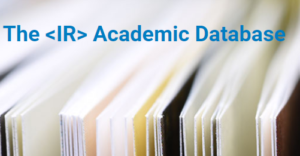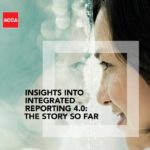
The International Integrated Reporting Council (IIRC) is today launching a new <IR> Academic Database, bringing together over 200 academic studies highlighting the potential positive ramifications of adopting integrated reporting, as well as commenting on emerging best practice.
Research included in the database concludes that integrated reporting leads to increased stock liquidity, better performance, higher market valuation and a longer-term investor base for the businesses that adopt it. The database, which is a freely available resource, can be accessed at: http://www.iracademicdatabase.org
Over 1,600 companies in 65 countries are using this emerging form of reporting to communicate a clear, concise, integrated story that explains how all of their resources are creating value. It is helping businesses to think holistically about their strategy and to manage keys risks.
Speaking at the launch of the database at the American Accounting Association Annual Meeting in Washington DC, the IIRC’s CEO, Richard Howitt, said: “What we have seen since the framework for integrated reporting was introduced to the world five years ago is nothing short that extraordinary. The evidence is there – in this database – that corroborates what I have always believed, integrated reporting can help instil financial stability and sustainable development in our markets.
“I urge any business leader not yet on the road to integrated reporting, or any investor that isn’t routinely using integrated reports to support their capital allocation decisions, to visit this database.
“With over 200 pieces of research, businesses can no longer ignore the need to communicate a holistic story of value creation to their stakeholders. Integrated reporting is not just the right thing to do for the sake of our markets, society and environment – it is the right thing to do for your business.”
The database, which represents the most comprehensive collection of scholarly investigation into the impact of integrated reporting in the world, will be the focal point for academic research on integrated reporting in the future and provides opportunity for further study, complementing the IIRC’s global <IR> Academic Network.
The IIRC would like to thank Italian communications agency, Mercurio GP, for their collaboration in developing this database.



